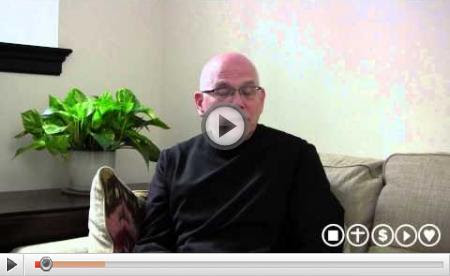Richard Rohr's Daily Meditation
The biblical tradition hopes to reveal that whenever the prophetic
function is lacking in any group or religion, such a group will very
soon be self-serving, self-maintaining, self-perpetuating, and self-
promoting. When the prophets are kicked out of any group, it's a very
short time until that group is circling the wagons around itself, and
all sense of mission and message is lost. I am afraid this is the
natural movement of any institution. Establishments of any kind usually
move toward their own self-perpetuation, rather than "What are we doing
for others?" In fact, the question is not even asked because
self-perpetuation is presumed to be a high level necessity. Thus the
prophetic and Pauline words for institutions were "thrones or dominions
or principalities or powers" (Colossians 1:16).
They consider themselves "too big to fail," usually because they are
protecting their own privilege--which is too important to question.
I believe Jewish religion is archetypal religion because it
illustrates the pattern of maturity/immaturity, advancement/regression,
best/worst that characterizes all cultures and all religions.
Catholicism is a mirror image of Judaism. The Church has made the same
mistakes, but we normally cannot see them or acknowledge them. "Jesus is
talking about the Jews," some would smugly say! When they read the
prophetic passages in the Bible, many do not think it applies to them
because most Christians seem to think that Christianity "replaced"
Judaism and fully corrected Judaism's mistakes. They are wrong on both
counts! You might as well just stop reading the Word of God if you think
it only applies to
those people who did it wrong, and "thank God we are not like them" (Luke
18:11). The patterns never change.
Once you see Judaism as archetypal religion--that the patterns of
ego and transformation and regression are universal--your own reflection
in the prophet's mirror becomes very clear. If we do not see Jesus and
the prophets speaking to every age, addressing universal themes of
illusion and our universal capacity for self-serving religion, I believe
we have found a most clever way
to honor the prophets into insignificance. They're really harmless when we make their message simply, "They foretold the coming of the Messiah."
Prophets step in to disrupt the usual social consensus--"How
wonderful our group is!"--and say, "It's just not entirely true!" So you
see why the prophets are all killed (Matthew 23:29-39). Prophets expose
and topple each group's idols and blind spots, very often showing that
we make things into absolutes that are not absolutes in God's eyes, and
we relativize what in fact is central and important. As Jesus so
cleverly puts it, "You strain out gnats and you swallow camels" (Matthew
23:24).
This tendency in religion to "absolutize" things comes from a deep
psychological need for some solid ground to stand on, and I understand
that. But what the prophets keep saying is, "
God is the only absolute!"
Don't make the fingers pointing to the moon into the moon itself, as it
were. Jeremiah said, "The Temple, the Temple, the Temple of Yahweh!
Don't you recognize it has become a robber's den?" (7:1-11) and this is
the very line that Jesus quotes (Mark
11:17).
But of course he was talking about Jerusalem, and surely not our parish
church, Salt Lake City, Washington, DC, or much less, St. Peter's in
Rome.
With that, perhaps we are ready to begin Lent
tomorrow.









